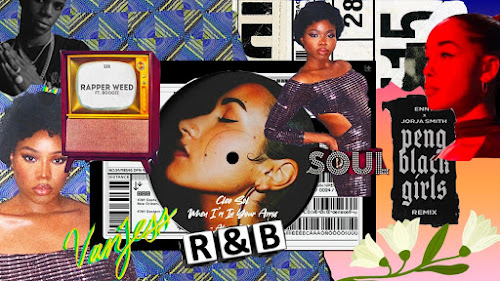Part Two: The problem with valorising black culture - 7/7/2020
This is the second part of a three part series. I have some thoughts about the recent proliferation of information that BLM has spurred. The capacity for activism on social media that this movement has shown is refreshing; but with it comes mis-information and new worries that need addressing if we want to have a productive conversation about structural racism in a digital space.
2. Without black people we wouldn’t have [insert one of the hundreds of music genres black people have created]!!”
I have seen this statement circulating on social media and also replicated on placards at protests. I have no qualms with its literal meaning because it is completely factual. Of course, it is important to recognise the massive contributions black people have given to a society that has not given them their due diligence. Yes, without black people we wouldn’t have rock and roll, jazz, blues, disco, soul and countless other forms of music that have greatly shaped Western culture as we know it today. And if we are to extend this idea further; yes, black people have even invented tools that are instrumental to our everyday lives. Ranging from Sarah Boone, the creator of the ironing board, to Elijah McCoy who revolutionised railroads to Marie Ban Britton Brown who literally created emergency police buttons and laid the groundwork for modern day CCTV. Without black people we wouldn’t be equipped with these wonderful mechanisms that are now essential to society, but this is very far from why black lives matter.
The issue with this effort to prioritise racist oppression is that it places black culture and black lives on the same rank of importance. It implies that the significance of black lives lies in value based judgements on what nonblack people believe is worthy of respect and valorisation. To say that ‘black people created something that I believe is important so therefore they are important’ is only related to the self, as something that is personally effectual rather that objective claims to humanity. Exploitation of production is exactly what structural oppression is based on, and if we still look towards production for others (especially cultural forms) as a basis of baseline standard for civil rights we are not progressing.
I understand the sincerity of this statement, and I really and truly understand that it is often well meaning, but it does not humanise black people; it conveys that black people matter when they are in service to others or contributing to something. The majority of black people are not revolutionary inventors or musical aficionados but that does not mean black lives are any less valuable. By prioritising the fruits of black people’s labour before all, we are involved in a process of racial hierarchisation that in inevitably tied to capitalism; with those few individuals who have created something deemed worthwhile at the top of the totem pole and the ‘ordinary blacks’ at the bottom. Black lives cannot be viewed in terms of exchange value, and any implicit claims to this is deeply dangerous.
This only serves to reproduce time-old traditions of black people as objectified entities. We can be exploited and commodified, thus constructing both blackness and black labour as something that is useful for everybody else rather than as something that should be inherently worthy. The phrase ‘Black Lives Matter’ means exactly that, plain and simple. First and foremost, we must acknowledge that black lives matter just as black lives before we can even begin to discuss how black lives have enhanced others.


Comments
Post a Comment